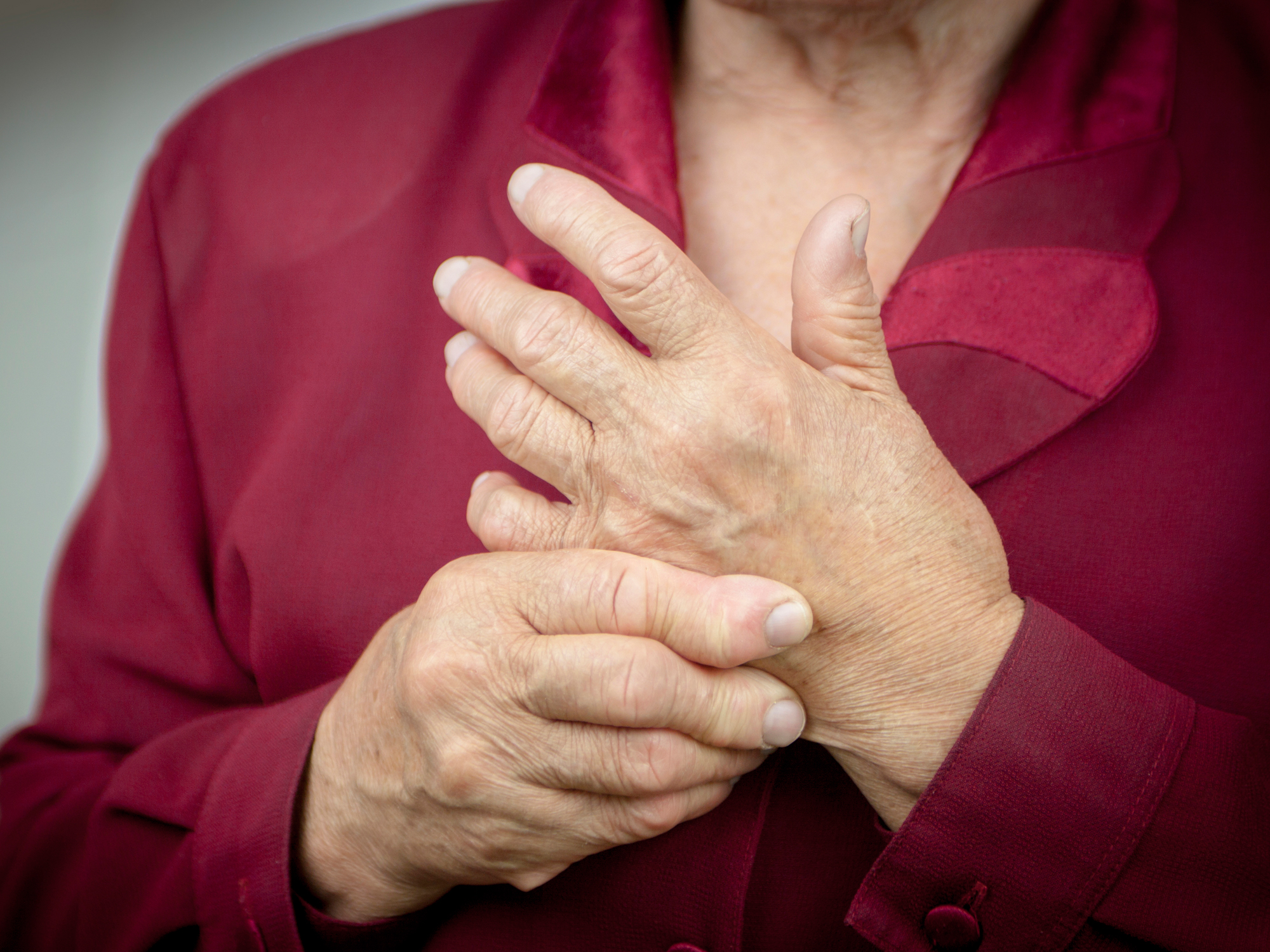Get Easy Health Digest™ in your inbox and don’t miss a thing when you subscribe today. Plus, get the free bonus report, Mother Nature’s Tips, Tricks and Remedies for Cholesterol, Blood Pressure & Blood Sugar as my way of saying welcome to the community!
Citrus fruit extract gets to the root of arthritis

Arthritis is often thought of as a normal part of aging, but is often misunderstood…
According to the Arthritis Foundation, “arthritis” is not a single disease, but a broad description for chronic joint pain or joint disease.
With about 50 million people in the U.S. currently experiencing some form of this debilitating joint condition, you may be surprised to learn that it is the leading cause of disability in America.
And cases of younger populations experiencing arthritis and arthritic conditions are on the rise, particularly rheumatoid arthritis, an auto-immune disease that causes the immune system to attack joint linings and tissues. Since arthritis is such a diverse group of conditions, it is quite a challenge to achieve sustainable treatment for long-term relief.
Now, this article isn’t meant to be all “doom and gloom” when it comes to tackling the fight against arthritis. There is good news: the research on complementary and alternative approaches for arthritis is expanding, as doctors and scientists look for other therapies which can halt, slow and hopefully reverse the processes of chronic inflammation and joint destruction.
Several natural treatments are showing effectiveness against many forms of arthritis. One approach focuses on a specific protein in the body called galectin-3.
What is galectin-3 (Gal-3)?
Galectin-3 is a type of protein found inside cells, in tissues and circulating in the bloodstream. At normal levels, Gal-3 is perfectly healthy; it actually plays an important role in cellular communication, necessary tissue repair and immunity. But at elevated levels in the blood, galectin-3 can cause serious issues. Research shows that elevated levels of galectin-3 are directly responsible for the inflammation, swelling, stiffness and joint destruction characteristic of arthritis, including rheumatoid arthritis.
Given Gal-3’s broad biological functionality, it has been demonstrated to be involved in a large number of medical implications. Published research has likewise demonstrated that modified citrus pectin (MCP) has the unique ability to bind to and inhibit Gal-3.
Modified citrus pectin: a little history
Since the 1990s, published research has centered around MCP in preventing cancer growth and metastasis, through its ability to block excess serum Gal-3 proteins and selectively modulate the immune system.
As an integrative physician, I have been prescribing MCP in my clinical practice for over 20 years. But early in my practice, it was remarkable to me how quickly this single ingredient appeared to offer relief from arthritis and joint problems. After starting on MCP for just a few weeks or less, many of my patients would report a noticeable reduction in joint pain and stiffness, and an overall increase in wellbeing.
This was before scientists discovered Gal-3’s role in chronic inflammation and fibrosis of joints, organs and tissues. However, as the body of Gal-3 research grew, scientists discovered Gal-3’s primary role in fueling inflammation and fibrosis throughout the body. That’s when MCP’s primary mechanisms against arthritis became clear.
Where does modified citrus pectin come from?
Pectin is found in the pith of citrus fruits. Modified citrus pectin (MCP) is extracted from regular citrus pectin and modified through an enzymatic process to lower its molecular weight and optimize its structure, which allows it to absorb into the circulation and work throughout the body. It binds and blocks excess Gal-3 proteins, chelates heavy metals without affecting essential minerals, and provides additional immune modulating properties that even make it helpful for people with autoimmune diseases, including rheumatoid arthritis.
Identifying galectin-3 is an excellent start
As the extensive body of published research continues to grow and validate the role Gal-3 plays in cancer and inflammatory-fibrosis related conditions, it may serve as the foundation for a new class of chronic illnesses: Elevated Galectin-3 Diseases. In 2011, the FDA approved a simple Gal-3 serum test to determine risks and prognosis. If you are concerned about your Gal-3 levels, you can inquire about this test with your doctor.
There are several types of arthritis with different causes and we are still working to completely understand the causes of these degenerative conditions. A holistic, integrative program that emphasizes all the patients’ personal needs like their diet, with additional targeted herbs and supplements which work to reduce inflammation and support joint tissues, can help alleviate joint pain and help you stay active.
For more health and wellness information, visit www.dreliaz.org.












